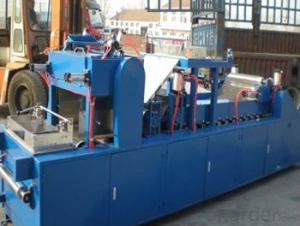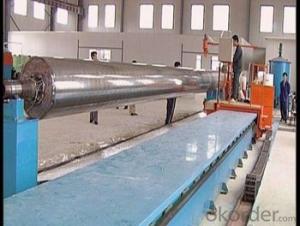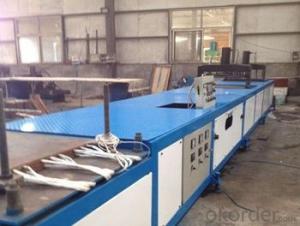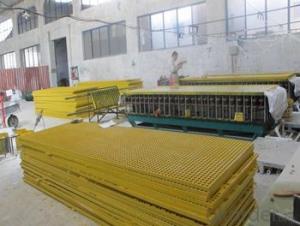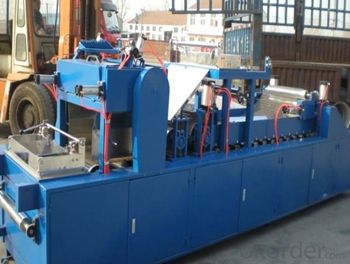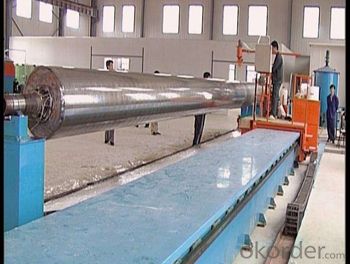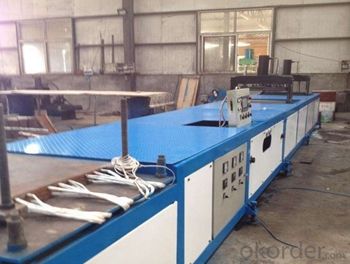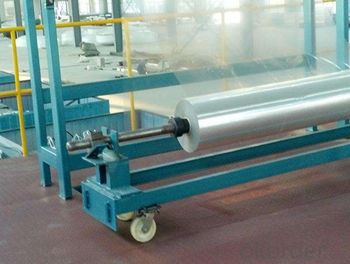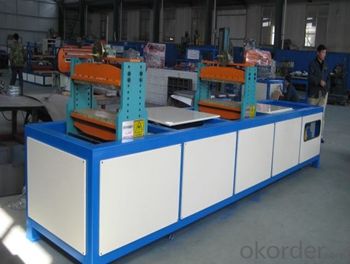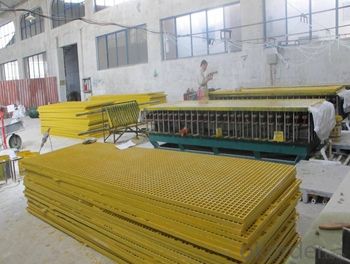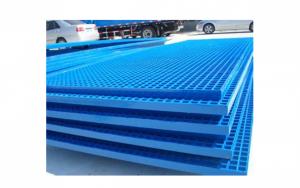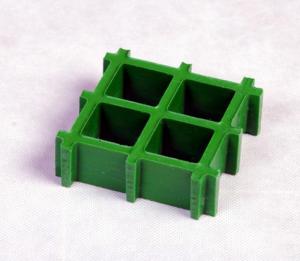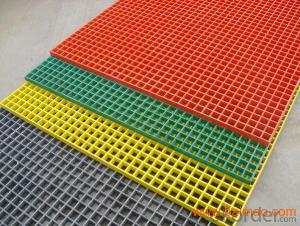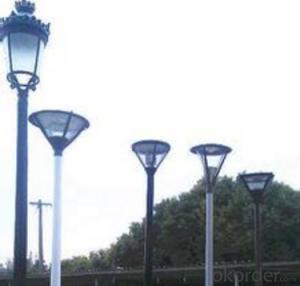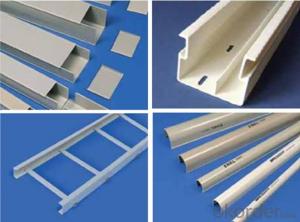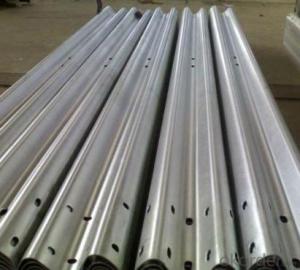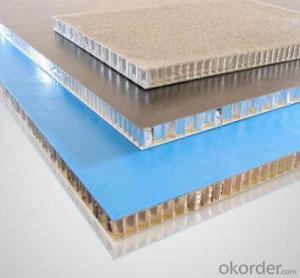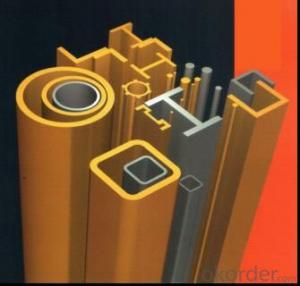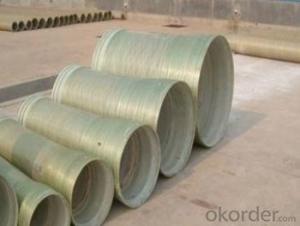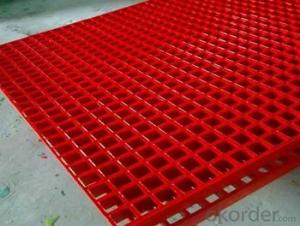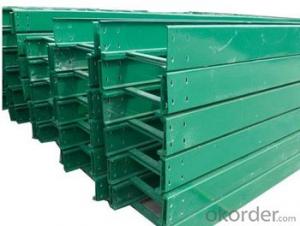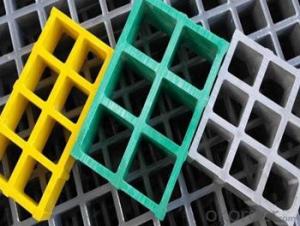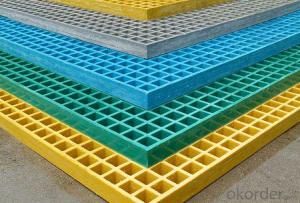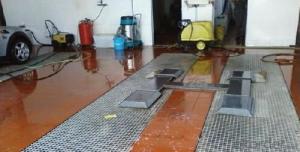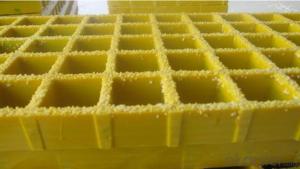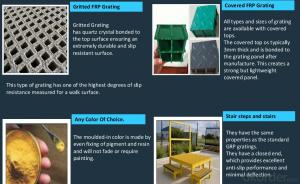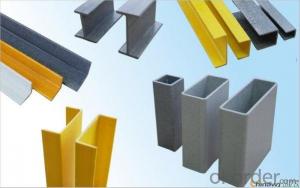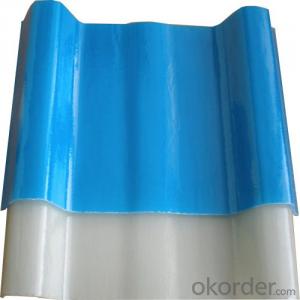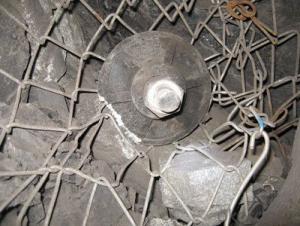FRP Pultrusion Profiles - Environmentally Friendly FRP Pultruded Gratings Made in China in Various Styles
- Loading Port:
- Tianjin
- Payment Terms:
- TT OR LC
- Min Order Qty:
- 16 m.t.
- Supply Capability:
- 50000 m.t./month
OKorder Service Pledge
OKorder Financial Service
You Might Also Like
Specification
PRODUCT DESCRIPTION
Pultruded grating is made by a particular assembly process, which using “I” shape as its main load-bearing and special rod to go through the bearing bar. Pultruded grating include the standard grating and the custom grating, the custom grating can be designed to meet customer’s requirement or special using condition by changing the shape, size and space of the bearing bars, the surface can be covered with lozenge panel, grit panel, or added the anti-slippery sand directly.
FRP pultruded grating has the most characteristics of molded grating, but it has its distinct advantages, it has very high fiberglass content in the loading direction, so it has very high load capability, it has more superiority when used at wide span, so that the basic support will be decreased and the project cost will be reduced accordingly.
SPECIFICATION
The standard space between two crossbars is 6 inch or 12 inch.
Thickness (mm) | Bar width (mm) | Open space (mm) | Open rate (%) | Approx weight (kg/m |
25.4 | 15.2 | 22.8 | 60 | 13.2 |
25.4 | 15.2 | 15.2 | 50 | 15.9 |
25.4 | 15.2 | 10.1 | 40 | 18.5 |
25.4 | 40 | 10.8 | 21 | 14.5 |
38.1 | 15.2 | 22.8 | 60 | 15.8 |
38.1 | 15.2 | 15.2 | 50 | 19.1 |
38.1 | 15.2 | 10.1 | 40 | 22.4 |
50.8 | 25.4 | 25.4 | 50 | 16.6 |
50.8 | 25.4 | 12.7 | 33 | 21.1 |
FEATURES
a. Anti-corrosion and anti-rust
b. Light weight and high strength
c. Anti-flammable
d. Anti- fatigue
e. Safe and anti-slippery
f. Anti-ageing
g. Easy of maintenance
h. Excellent electromagnetism property
i. Good economic benefit
APPLICATION
Operation terrace,
stair walkway,
ground floor,
trench cover,
sidewalk,
foot bridge,
equipment safety fence,
scaffold.
COMPANT DESCRIPTION
CNBM International Corporation is one subsidiary of CNBM, we focus on offering good-quality products,professional service and complete solution to our customers. Strong delivery capacity, advanced technology& management, strong financing capability and excellent after-sale service are our advantages in sharing international market.
PACKAGING & DELIVERY
1.Packaging Details:
plastic film and pallet
2.Delivery Detail:
In 25 days after receiving the down payment
FAQ
Q1.What's your sample policy?
A:We can supply the sample if we have ready parts in stock, but the customers have to pay the courier cost.
Q2.Can you produce according to the samples?
A: Yes, we can produce or modify the products according to your request.
Q3.How do you deliver the goods to my country?
A:We can provide international express, such as DHL, EMS, UPS, FedEx, etc. We select air freight and sea freight upon your requests. Quotations if without mentioning the shipping costs are shipping fee excluded.
Q4.How much does it cost to ship to my country?
A:When you goanna to place an order, please contact us, because different country has different freight.
Q5.How to get the catalogue?
A:please contact us and tell us what you are looking for.
We will try our best to meet customers' demands. Welcome you come here to visit us. We sincerely welcome partners around the world to establish business cooperation with us on the basis of mutual trust, benefit and development.
PICTURES
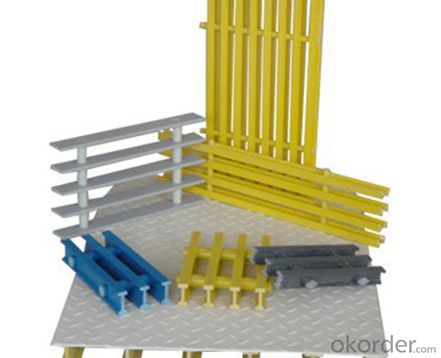
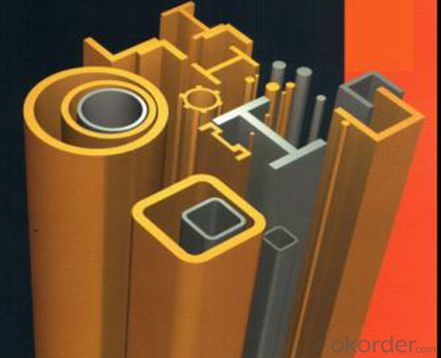
- Q: Are FRP pultrusion profiles resistant to hydrocarbons?
- Yes, FRP (Fiber Reinforced Polymer) pultrusion profiles are generally resistant to hydrocarbons due to their inherent corrosion resistance properties. The composite materials used in FRP profiles provide excellent resistance to various chemicals, including hydrocarbons, making them suitable for applications in industries where exposure to such substances is common.
- Q: What are the different shapes and sizes of FRP pultrusion profiles available?
- There is a wide selection of FRP pultrusion profiles, which come in various shapes and sizes, to accommodate different applications and industries. Some of the commonly found shapes are as follows: 1. Square and rectangular profiles: These profiles are utilized in construction, infrastructure, and industrial sectors, and they come in different dimensions. They possess exceptional structural strength and can serve as beams, columns, or other load-bearing components. 2. Round profiles: Round FRP pultrusion profiles are frequently employed as structural supports, handrails, and guardrails. They are available in different diameters to suit specific requirements. 3. I-beams: FRP I-beams are well-liked in the construction field because of their high strength-to-weight ratio. They are commonly used as structural members, supporting elements, or floor joists. 4. Channel profiles: Channel-shaped FRP profiles are utilized in applications that demand a combination of strength and versatility. They find use in cable trays, equipment supports, and framing systems. 5. Angle profiles: FRP angle profiles are commonly used as reinforcements or supports in construction and industrial settings. They provide stability and structural integrity to various components. 6. Custom profiles: In addition to the standard shapes mentioned above, FRP pultrusion profiles can be tailor-made to meet specific requirements. Manufacturers have the capability to create profiles with unique shapes and sizes that cater to the needs of different applications. It is worth noting that the availability of shapes and sizes may differ among manufacturers. Therefore, it is advisable to consult suppliers or manufacturers to determine the specific range of FRP pultrusion profiles they offer.
- Q: Can FRP pultrusion profiles be used in architectural or decorative applications?
- Yes, FRP pultrusion profiles can definitely be used in architectural or decorative applications. FRP, which stands for Fiber Reinforced Polymer, is a composite material that combines strong fibers, such as glass or carbon, with a polymer resin matrix. This combination creates a lightweight, durable, and corrosion-resistant material that is ideal for various applications, including architecture and decoration. FRP pultrusion profiles can be manufactured in a wide range of shapes and sizes, making them highly versatile for architectural and decorative purposes. These profiles can be used to create aesthetically pleasing structures, such as columns, beams, and facades, that enhance the visual appeal of buildings. Additionally, FRP pultrusion profiles can be fabricated to mimic the appearance of other materials, such as wood or metal, allowing for the creation of decorative elements that blend seamlessly with the overall design. Furthermore, FRP pultrusion profiles offer several advantages over traditional materials commonly used in architecture and decoration. They are lightweight, which makes them easier to handle and install, reducing labor costs. They are also highly resistant to corrosion, weathering, and UV radiation, ensuring long-lasting performance in outdoor applications. Additionally, FRP profiles can be customized to meet specific design requirements, including color, texture, and surface finish, providing endless possibilities for creative expression. In summary, FRP pultrusion profiles are a viable option for architectural and decorative applications. Their lightweight, durable, and customizable nature makes them suitable for a wide range of design needs, while their corrosion resistance ensures longevity and low maintenance. Whether it's for structural support or decorative embellishments, FRP pultrusion profiles offer an excellent choice for enhancing the aesthetics and functionality of architectural and decorative projects.
- Q: Can FRP pultrusion profiles be used in the construction of chemical processing equipment?
- Yes, FRP (Fiber Reinforced Plastic) pultrusion profiles can be used in the construction of chemical processing equipment. FRP offers excellent resistance to corrosion, chemicals, and high temperatures, making it a suitable material for such applications. The pultrusion process ensures that the profiles are strong, durable, and have consistent properties, making them reliable for use in chemical processing equipment where resistance to corrosive substances is crucial.
- Q: Can FRP pultrusion profiles be used in the construction of industrial flooring?
- Yes, FRP pultrusion profiles can be used in the construction of industrial flooring. These profiles are lightweight, durable, and corrosion-resistant, making them an ideal choice for industrial applications. They offer high strength-to-weight ratio, excellent load-bearing capacity, and resistance to chemicals, moisture, and extreme temperatures. Additionally, FRP pultrusions can be customized to meet specific design requirements, making them versatile for various industrial flooring applications.
- Q: What are the environmental benefits of using FRP pultrusion profiles?
- There are several environmental benefits associated with using FRP (Fiber Reinforced Polymer) pultrusion profiles. Firstly, FRP pultrusion profiles are lightweight and have a high strength-to-weight ratio. This means that less material is required to achieve the same structural integrity as traditional materials like steel or concrete. As a result, the production and transportation of FRP profiles consume less energy and generate fewer greenhouse gas emissions. Additionally, FRP pultrusion profiles are highly durable and resistant to corrosion, which increases their lifespan and reduces the need for frequent replacements. This not only saves resources but also reduces the amount of waste that ends up in landfills or requires recycling. Furthermore, FRP is non-conductive, making it an excellent alternative to metals in electrical applications. This property eliminates the risk of electrical accidents and reduces the need for insulation, which often involves hazardous materials. Moreover, the manufacturing process of FRP pultrusion profiles typically requires lower energy inputs compared to other materials. The pultrusion process itself is energy-efficient, and the raw materials used in FRP production, such as resins and fibers, can be sourced from renewable or recycled sources. Lastly, FRP pultrusion profiles are chemically inert and do not release harmful substances into the environment. This characteristic makes them suitable for various applications, such as water treatment plants, where avoiding chemical leaching is crucial for maintaining water quality. In conclusion, the environmental benefits of using FRP pultrusion profiles include reduced energy consumption, lower greenhouse gas emissions, extended product lifespan, decreased waste generation, decreased reliance on non-renewable resources, and minimized chemical leaching. These advantages make FRP a sustainable and eco-friendly choice for a wide range of industries.
- Q: Are FRP pultrusion profiles fire resistant?
- Yes, FRP pultrusion profiles are fire resistant.
- Q: Can FRP pultrusion profiles be used in the construction and building materials industry?
- Yes, FRP pultrusion profiles can be effectively used in the construction and building materials industry. These profiles offer several advantages such as high strength-to-weight ratio, corrosion resistance, and dimensional stability, making them suitable for a wide range of applications including structural elements, handrails, gratings, and reinforcements. Additionally, FRP pultrusion profiles can be easily customized to meet specific project requirements, making them a popular choice in the industry.
- Q: Can FRP pultrusion profiles be used in the construction of industrial flooring?
- Yes, FRP pultrusion profiles can be used in the construction of industrial flooring. These profiles are lightweight, durable, and corrosion-resistant, making them an ideal choice for industrial applications. They offer high strength-to-weight ratio, excellent load-bearing capacity, and resistance to chemicals, moisture, and extreme temperatures. Additionally, FRP pultrusions can be customized to meet specific design requirements, making them versatile for various industrial flooring applications.
- Q: What are the typical lifespan of FRP pultrusion profiles?
- The typical lifespan of FRP pultrusion profiles can vary depending on various factors such as the specific application, environmental conditions, and maintenance practices. However, on average, FRP pultrusion profiles can have a lifespan ranging from 20 to 50 years.
Send your message to us
FRP Pultrusion Profiles - Environmentally Friendly FRP Pultruded Gratings Made in China in Various Styles
- Loading Port:
- Tianjin
- Payment Terms:
- TT OR LC
- Min Order Qty:
- 16 m.t.
- Supply Capability:
- 50000 m.t./month
OKorder Service Pledge
OKorder Financial Service
Similar products
Hot products
Hot Searches
Related keywords
